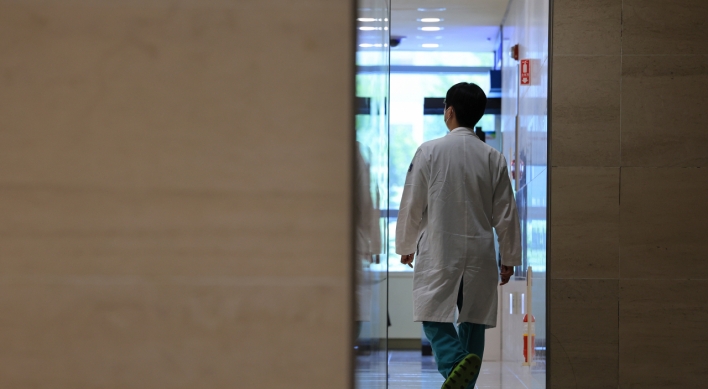Korea left with little choice on rice market opening: officials
By Korea HeraldPublished : April 10, 2014 - 20:42
Korea may have no choice but to open up its rice market, government officials here said Thursday, one day after the World Trade Organization again rejected the Philippines’ request to waiver its mandatory rice market liberalization.
It was the sixth time the WTO has rejected such a request since the negotiations began in 2011, according to officials from the Ministry of Agriculture, Food and Rural Affairs.
“The WTO decision largely tells us two things. One is that it will be nearly impossible for us to keep the status quo in terms of the amount of rice the country must import under the minimum market access quota,” said Kim Kyung-mee, the head of the ministry’s agricultural commerce division.
“And the other is that it might be extremely difficult for the country to win a waiver for its rice market opening.”
Under a 1993 agreement with the WTO, South Korea has been able to postpone liberalizing its rice market in exchange for gradually increasing its import quota, which is expected to reach over 400,000 tons this year.
The agreement, extended by 10 years in 2004, expires at the end of this year. Korea is now left with two options: request a waiver as the Philippines did or open its rice market with considerable import duties.
Most of the farmers here, like their peers in the Philippines, are strongly opposed to market liberalization and demand the government obtain a WTO waiver at any cost.
Ministry officials have said no decision has been made so far but that the cost of a waiver, or even just a request for such an extension, may be too great.
The Philippines, originally set to open its rice market in 2012, had to further increase its import quota while seeking a five-year extension, which, even if granted, will expire at the end of 2017.
The MMA import quota remains fixed even after market liberalization, which means a country must import the set amount of rice at preferred rates regardless of any changes or problems in its local market.
Lee Dong-phil, South Korea’s agriculture minister, earlier said the country may not have had to import an additional 200,000 tons of rice per year if it had switched to an open rice market 10 years ago.
What makes South Korea hesitate from requesting another delay of market liberalization is not only the additional cost it must bear, but the fact that it has even less chance than the Philippines to be granted a waiver, ministry officials said. (Yonhap)
It was the sixth time the WTO has rejected such a request since the negotiations began in 2011, according to officials from the Ministry of Agriculture, Food and Rural Affairs.
“The WTO decision largely tells us two things. One is that it will be nearly impossible for us to keep the status quo in terms of the amount of rice the country must import under the minimum market access quota,” said Kim Kyung-mee, the head of the ministry’s agricultural commerce division.
“And the other is that it might be extremely difficult for the country to win a waiver for its rice market opening.”
Under a 1993 agreement with the WTO, South Korea has been able to postpone liberalizing its rice market in exchange for gradually increasing its import quota, which is expected to reach over 400,000 tons this year.
The agreement, extended by 10 years in 2004, expires at the end of this year. Korea is now left with two options: request a waiver as the Philippines did or open its rice market with considerable import duties.
Most of the farmers here, like their peers in the Philippines, are strongly opposed to market liberalization and demand the government obtain a WTO waiver at any cost.
Ministry officials have said no decision has been made so far but that the cost of a waiver, or even just a request for such an extension, may be too great.
The Philippines, originally set to open its rice market in 2012, had to further increase its import quota while seeking a five-year extension, which, even if granted, will expire at the end of 2017.
The MMA import quota remains fixed even after market liberalization, which means a country must import the set amount of rice at preferred rates regardless of any changes or problems in its local market.
Lee Dong-phil, South Korea’s agriculture minister, earlier said the country may not have had to import an additional 200,000 tons of rice per year if it had switched to an open rice market 10 years ago.
What makes South Korea hesitate from requesting another delay of market liberalization is not only the additional cost it must bear, but the fact that it has even less chance than the Philippines to be granted a waiver, ministry officials said. (Yonhap)
-
Articles by Korea Herald








![[Kim Seong-kon] Democracy and the future of South Korea](http://res.heraldm.com/phpwas/restmb_idxmake.php?idx=644&simg=/content/image/2024/04/16/20240416050802_0.jpg&u=)










![[Today’s K-pop] Zico drops snippet of collaboration with Jennie](http://res.heraldm.com/phpwas/restmb_idxmake.php?idx=642&simg=/content/image/2024/04/18/20240418050702_0.jpg&u=)